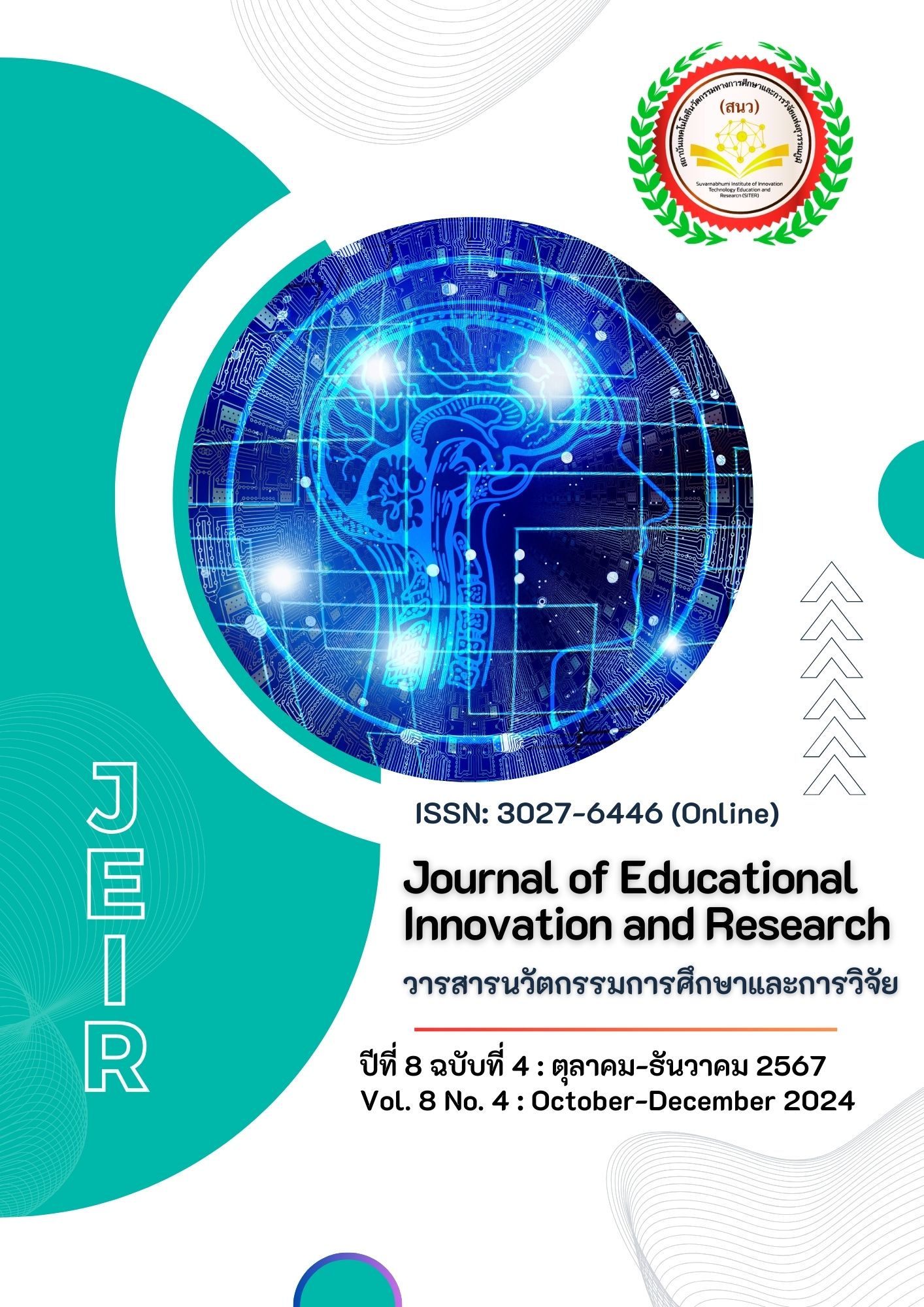Impact of Organizational Learning Culture on Instructor Innovative Behavior of Private Higher Education Institutions in Sichuan Province, China
Main Article Content
บทคัดย่อ
the research found that: 1) The distribution of demographic characteristics of respondents, the majority of respondent were female of 62 %, their ages between 31-40 years old of 35.6%, education level graduate master’s degree, of 56.8%, teaching experience: < 5 of 28.5%, and academic title associate professor, 24.7%. 2) There are various factors such as organizational learning culture, knowledge sharing that have the impact on instructor innovative behavior. 3) In this regard, this study has been designed in order to find out the impact of organizational learning culture, on instructor innovative behavior, via knowledge sharing in the mediating role that have the significant impact. Furthermore, it was found out that the mediating impact of knowledge sharing factors is significant in the relationship of all the independent and dependent variables.
Article Details

อนุญาตภายใต้เงื่อนไข Creative Commons Attribution-NonCommercial-NoDerivatives 4.0 International License.
เอกสารอ้างอิง
Akram, T., Lei, S., Haider, M. J. & Hussain, S. T. (2018). Exploring the impact of knowledge sharing on the innovative work behavior of employees: A study in China. International Business Research, 11(3), 186–194.
Amabile, T. M. (1988). A model of creativity and innovation in organizations. Research in Organizational Behavior, 10, 123–167.
Bui, H. T. M., Shoaib, S., Tran, L. T., Vu, V. H. T. & Baruch, Y. (2023). University’s shared vision for research and teaching: An international comparative study. Higher Education, 85(1), 67–89.
Chen, W. (2014). Literature review of knowledge management. Economic Research Guide, 2014(2), 247–249.
Cui, F., Hu, H. H. & Cui, W. T. (2017). The motivations of virtual community members’ continuous sharing of knowledge: Based on swift Guanxi. Information Journal, 36(12), 186–192.
Ding, R. (2021). Influence of perceived organizational support on learners’ willingness to share knowledge in collaborative learning [Master’s thesis, Central China Normal University].
Ghardashi, F., Yaghoubi, M., & Teymourzadeh, E. (2019). Innovation capability in medical sciences universities: A qualitative study of Iran. Journal of Education and Health Promotion, 8, 16.
Hosseini, S. & Shirazi, Z. R. H. (2020). Towards teacher innovative work behavior: A conceptual model. Cogent Education, 8(1), 1869364.
Hsiao, H.Ch., Chen, S., Chang, J., Chou, Ch. & Shen, Ch. (2019). Factors that influence school organizational innovation in technical institutes and universities. World Transactions on Engineering and Technology Education, 7(1), 71–76.
Huang, H., Ye, L., & Lu, L. (2018). Research on the influence of creativity orientation on innovative behavior of knowledge workers. Shanghai Management Science, 40(4), 78–85.
Imamoglu, S.Z., Ince, H. & Turkcan, H. (2019). The effect of organizational justice and organizational commitment on knowledge sharing and firm performance. Procedia Computer Science, 158, 899–906.
Jamil, R A., Iitikhar, M., Arif, S. & Bahar, G. (2023). A survey of student perceptions of team-based learning: Assessment of Pakistan and UK students. Management Arts, 50, 10475.
Jin, S.J. (2018). Relationships between team diversity and knowledge sharing [Master’s thesis, Zhejiang University of Industry and Commerce].


